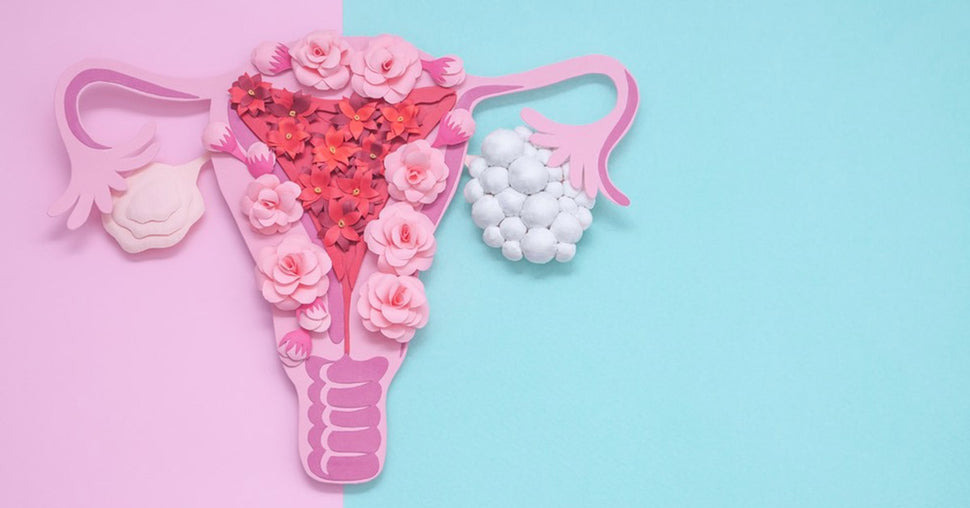PCOS Effects on Body You Must Know
15 Apr 2020
Despite what most people think, PCOS is not a disease in the traditional sense, but is a syndrome. This means that it can present with a wide range of symptoms, with every woman’s experience of the condition being unique to her. That said, the symptoms of PCOS fall into a specific pattern or set – they are almost all caused by an elevation in the level of male hormones, known as androgen. In many women, this also leads to the development of ovarian cysts, but contrary to popular belief this is not always the case. Because of the role of hormonal balances in the development and symptoms of PCOS, it is classified as an endocrinal disorder. These imbalances and changes in hormones can have a cascading effect on health and wellbeing, making it important to understand how the condition progresses and affects your body.
PCOS & Hormones: What changes?
Typically, the hypothalamus in the brain makes the hormone GnRH (Gonadotropin-releasing hormone). GnRH stimulates the pituitary gland to release 2 hormones – FSH (Follicle-Stimulating Hormone) and LH (Luteinizing Hormone). These hormones then travel in the bloodstream to the ovaries. As the name suggests, FSH stimulates the growth of the follicles so that hundreds of eggs start to mature.
As the eggs mature, the follicles release estrogen, which is the main female sex hormone. When the amount of estrogen in the blood reaches a certain level, the pituitary gland sends a surge of LH to the ovaries. This causes the most mature follicle to open and release the egg within it, aka ovulation. The egg then travels down the fallopian tube to the uterus and if it is not fertilized, it will be shed and the woman will have her normal menstrual period.
In the case of PCOS, there is a problem right at the start of this process (1) due to the abnormal release of the GnRH hormone by the hypothalamus. This results in a disruption in the release of the FSH and LH hormones, so that LH increases and FSH decreases. The decrease in FSH impairs the maturation process of the follicles and instead of maturing they turn into fluid-filled sacs called cysts. This means that no mature egg is released and ovulation does not occur.
How PCOS Hormonal Changes Affect You
Irregular or no periods
Insulin resistance and PCOS are closely linked; in fact, 50%–70% of women (2) with this condition also have insulin resistance. If you have insulin resistance, it means that the cells in your body fail to utilize insulin in your blood, which leads to elevated insulin levels. The excess insulin along with increased levels of LH triggers and maintains high levels of androgens – the male hormones. These hormones interfere with the menstrual cycle resulting in irregular or missing periods (amenorrhea). It is important to note that insulin resistance impairs glucose uptake, increasing your risk of pre-diabetes and type-2 diabetes.
Hirsutism or excessive hair growth
Hirsutism is the excess male-pattern hair growth on a woman’s face, chest, and back. PCOS is the most common cause (3) of hirsutism, as it accounts for 75% of all cases. The increase in body hair growth is caused by the increased levels of testosterone.

Weight gain
Insulin is required to convert carbs into energy within the cells of your body. Since PCOS is linked to insulin resistance, it means that the cells in your body do not utilize the glucose from your blood. When this happens, your body stores this glucose as fat, which causes weight gain and obesity.
Difficulty getting pregnant
The fluctuation in hormone levels that was discussed above, results in failure to ovulate or irregular ovulation. Since there is no egg to fertilize, you are unable to get pregnant.
Depression and anxiety
It’s important to note that PCOS doesn’t just affect your body, but also affects mental and emotional health. While scientists are unable to pinpoint specific PCOS hormonal changes that affect mental health, studies show that approximately 40 % of women with PCOS (4) suffer from depression. Stress and anxiety are also common mental health issues, especially in younger women. Furthermore, PCOS symptoms such as hirsutism and weight gain can negatively affect self-image and confidence. It is important to understand how PCOS affects your mental health as conditions such as depression, anxiety and stress will affect your relationships with others and with yourself.
Treatment for PCOS generally includes combination birth control pills containing estrogen and progestin to decrease androgen production and regulate your menstrual cycle. Your doctor may also recommend drugs such as Letrozole or Gonadotropin injections to help you ovulate. Keep in mind that these medications change the various hormone levels in your body and can cause serious side-effects.
Skin: Renew - Glutathione - Orange Flavour
- ₹1,994
- ₹1,994
-
₹2,600 - ( 23% OFF)
Categories
- Choosing a selection results in a full page refresh.
- Press the space key then arrow keys to make a selection.
this is the sidecart











